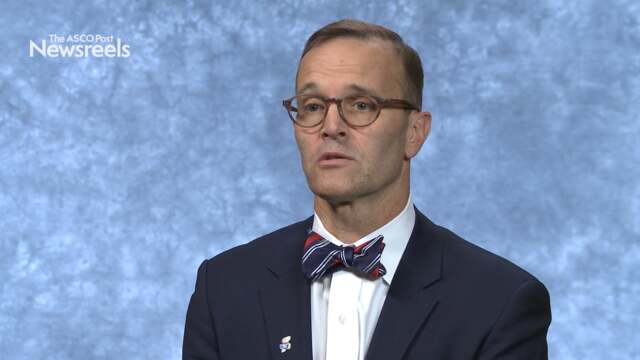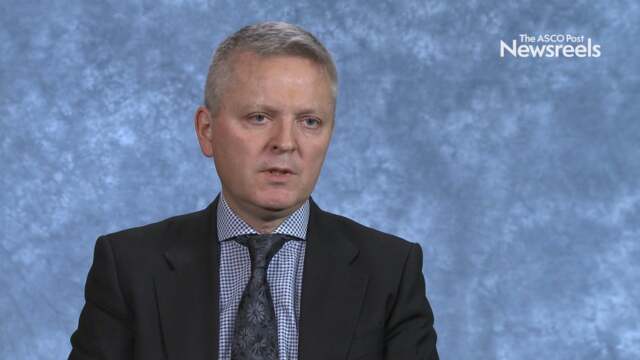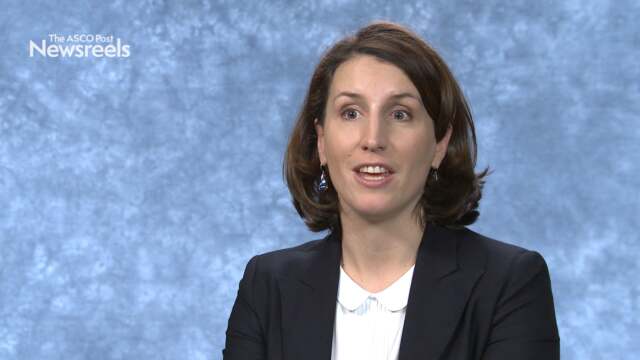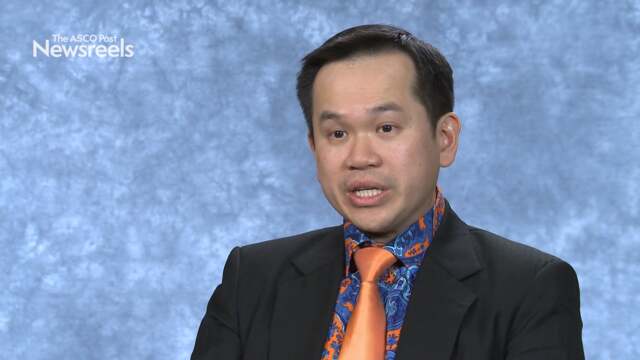Eric J. Small, MD, on Prostate Cancer: Results From the SPARTAN Trial
2018 Genitourinary Cancers Symposium
Eric J. Small, MD, of the University of California, San Francisco, discusses phase III findings on apalutamide vs placebo in patients with nonmetastatic castration-resistant prostate cancer (Abstract 161).
Jeffrey M. Holzbeierlein, MD, of the University of Kansas Medical Center, summarizes key abstracts on long-term sexual function in germ cell tumor survivors, sentinel node biopsy in clinical stage I testicular cancer, the impact of Medicaid expansion on diagnosis and management of patients with testicular cancer, and comparative genomic profiling of refractory/metastatic penile and nonpenile cutaneous squamous cell carcinoma (Abstracts 549-552).
Patrick Schöffski, MD, MPH, of Catholic University Leuven, discusses findings on the effect of crizotinib on disease control in patients with advanced papillary renal cell carcinoma type 1 with MET mutations or amplification (Abstract 580).
Daniel J. George, MD, of Duke University Medical Center, discusses study findings on cabozantinib vs sunitinib for previously untreated patients with advanced renal cell carcinoma of intermediate or poor risk, in a subgroup analysis of progression-free survival and objective response rates (Abstract 582).
Laurence Albiges, MD, PhD, of the Gustave Roussy Cancer Centre, discusses study findings on the safety and efficacy of nivolumab in metastatic renal cell carcinoma (Abstract 577).
Paul L. Nguyen, MD, of the Dana-Farber Cancer Institute, summarizes a session he chaired on prostate cancer, which included discussion of daily vs weekly image-guided radiotherapy; a biomarker to predict biochemical failure and metastasis; a comparison of abiraterone or enzalutamide activity; and the impact of 18F-fluciclovine PET/CT on clinical management choices for men with biochemically recurrent disease (Abstracts 4, 5, 164, 165).





